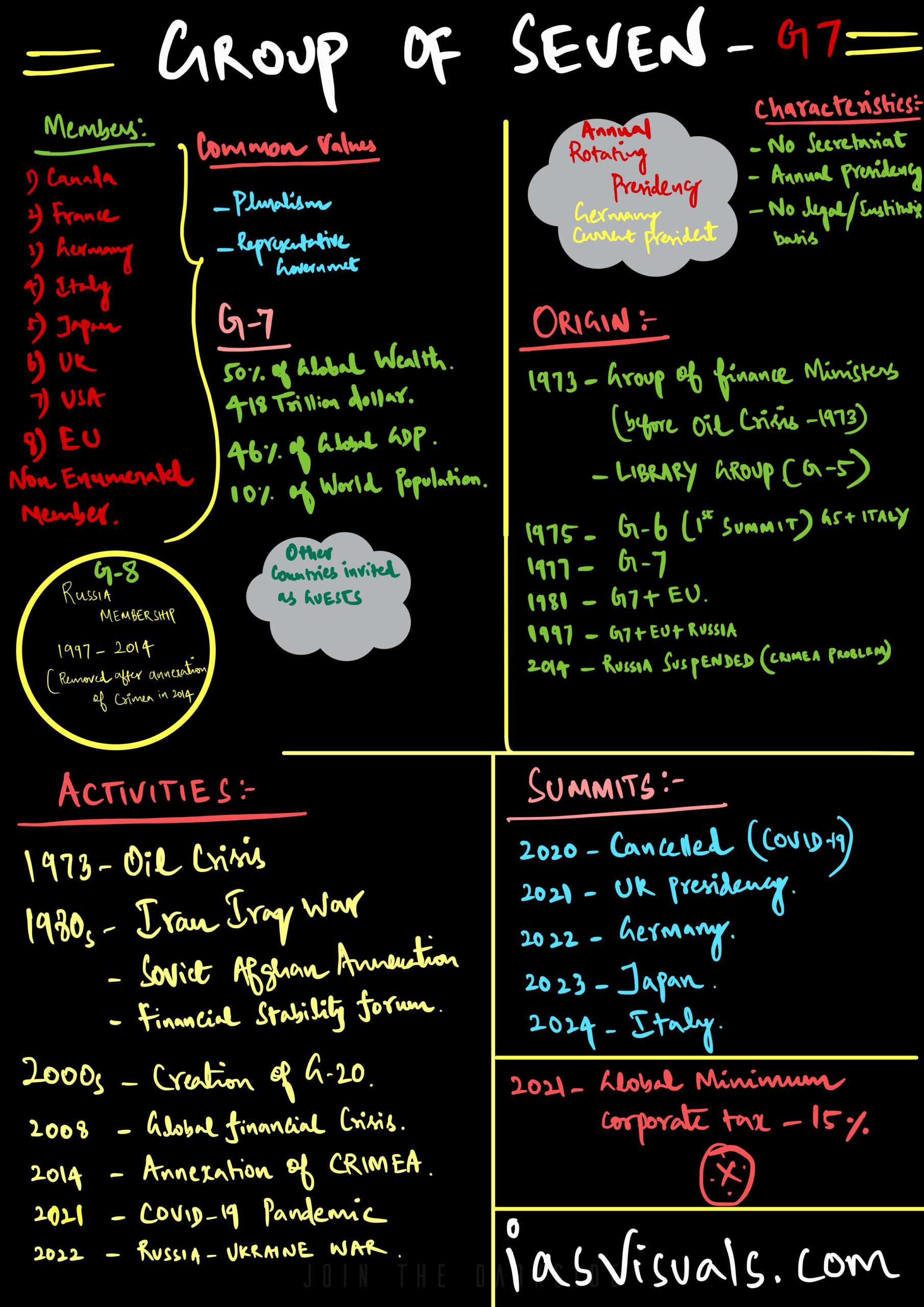Group of seven is an intergovernmental political forum consisting of following members.
- Canada
- France
- Germany
- Italy
- Japan
- United Kingdom
- United States of America
- European Union (Non Enumerated Member)
Common Values of G7:
- Pluralism
- Representative Government
Economy of G7:
- 50% of Global Wealth (418 Trillion Dollar)
- 46% of Global GDP
- 10% of World Population
Cancellation of Russia’s Membership:
Russia has been member of G8 from 1997 to 2014. On 2014 its membership has been cancelled due to annexation of Crimea.
Presidency of G7:
Annual rotating presidency is in vogue. Germany is the president for the summit 2022.
Upcoming Summits and Presidency:
2023- Japan Presidency
2024- Italy
Characteristics of the G7:
- No Secretariat
- Annual rotating presidency
- No legal/Institutional Basis
Origin of G7:
1973 – Group of Finance Ministers (Library Group – G5)
1975 – G6 (1st Summit) G5+ Italy
1977 – G7
1988 – G7+EU
1997 – G7+EU+ Russia
2014- Russia Suspended (Crimean Annexation)
Activities:
1973 – Oil Crisis
1980s – Iran Iraq War, Soviet Afghan Annexation, Financial Stability Forum
2000s – Creation of G-20
2008 – Global Financial Crisis
2014 – Annexation of Crimea
2021 – Covid 19 Pandemic, Global Minimum Corporate Tax 15%
2022 – Russia Ukraine War
Financial Action Task Force (FATF) was founded in 1989 on the initiative of the #G7 to combat Money laundering and terrorism financing.
Conclusion:
While lacking a legal or institutional basis, the G7 is considered to wield significant international influence. It has catalyzed or spearheaded several major global initiatives, including efforts to combat the HIV/AIDS Pandemic , provide financial aid to developing countries, and address climate change through the 2015 Paris Agreement. The group has been criticized for its allegedly outdated and limited membership, narrow global representation, and ineffectualness. It is also opposed by anti globalization groups, which often protest at summits.

